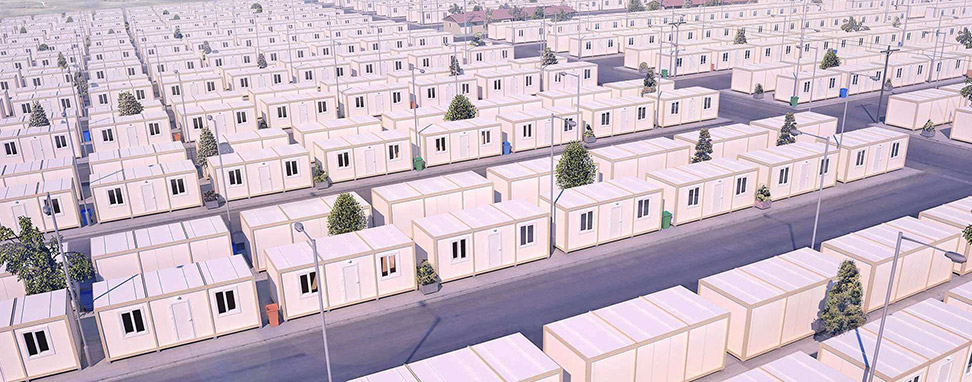Initial Condition: Shipping containers are designed for cargo transport and storage, not for human habitation. As such, they are not naturally well-suited for insulation or comfortable living conditions. They typically have minimal insulation and basic sealing to protect the cargo from the elements.
Modifications: To make metal container houses suitable for living, significant modifications are usually necessary. This can include adding insulation materials, sealing gaps, and installing windows, doors, and HVAC systems. The quality of these modifications can greatly impact the overall insulation and sealing of the house.

Insulation Types: Different insulation materials can be used in container houses, such as spray foam, rigid foam panels, or traditional fiberglass insulation. The type and thickness of insulation chosen will affect the effectiveness of thermal and sound insulation.
Sealing Methods: Proper sealing is crucial to prevent air leakage, moisture intrusion, and drafts. Sealing methods may involve caulking, weatherstripping, and addressing gaps or joints where containers are joined together or modified.
Energy Efficiency: Well-sealed and insulated container houses can be energy-efficient, helping to maintain comfortable indoor temperatures and reduce heating and cooling costs. However, achieving high energy efficiency may require careful planning and attention to insulation details.
Climate Considerations: The climate in which the container house is located plays a significant role in determining the necessary level of insulation. In colder climates, thicker insulation is typically needed to keep the interior warm, while in hotter climates, insulation helps keep the interior cool.
Condensation Management: Proper insulation and sealing also help manage condensation issues, preventing moisture buildup that can lead to mold and other problems.
Professional Expertise: Designing and modifying a metal container house to achieve effective sealing and insulation often requires professional expertise. Architects, engineers, and contractors experienced in container house construction can help ensure proper insulation and sealing.
Cost and Budget: Achieving high levels of insulation and sealing can contribute to the overall cost of the project. Balancing budget constraints with desired levels of comfort and energy efficiency is an important consideration.
It's important for anyone considering a metal container house to work closely with professionals who have experience in container construction and to discuss insulation and sealing options thoroughly. When well-designed and executed, metal container houses can be effectively sealed and insulated to provide comfortable and energy-efficient living spaces.








